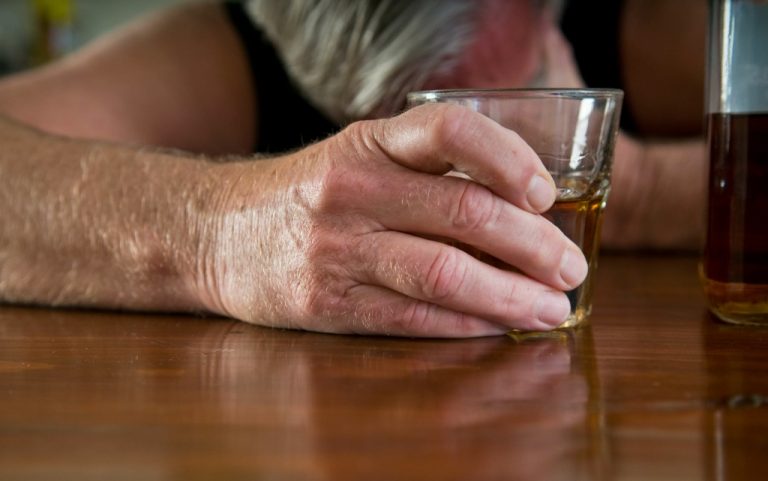MBRP has been successfully implemented in various settings, from outpatient addiction clinics to innovative prison-based treatment programs, demonstrating its versatility. For those interested in its core concepts, the work coming from the University of Washington’s Addictive Behaviors Research Center provides extensive resources and research on the topic. At Carolina Center for Recovery and affiliates, we aim to provide readers with the most accurate and updated healthcare information possible.

But more importantly, it usually will lead to a mental relapse of obsessive or uncontrolled thinking about using, which eventually can lead to physical relapse. Occasional, brief thoughts of using are normal in early recovery and are different from mental relapse. They feel they are doing something wrong and that they have let themselves and their families down. They are sometimes reluctant to even mention thoughts of using because they are so embarrassed by them. I have also included a link to a public service video on relapse prevention that contains many of the ideas in this article and that is freely available to individuals and institutions 5. Each skill you develop strengthens your ability to maintain sobriety.
How to address feelings of hopelessness in recovery
The cycle of addiction and relapse is a complex process influenced by various factors. By understanding this cycle, individuals can identify warning signs and take proactive steps to prevent relapse. The stages of relapse unfold gradually, like chapters in a tragic novel. It begins with emotional relapse, where subtle signs of distress and discontent start to emerge, often unnoticed. This phase then progresses to mental relapse, where conflicting thoughts and cravings wrestle for dominance in the mind.
Driving Under the Influence of Prescription Drugs
A setback can be any behavior that moves an individual Substance abuse closer to physical relapse. Some examples of setbacks are not setting healthy boundaries, not asking for help, not avoiding high-risk situations, and not practicing self-care. A setback does not have to end in relapse to be worthy of discussion in therapy. They work well alongside your coping strategies and overall recovery plan.
Components of an Effective Plan
Together, we can navigate the challenges of addiction and steer a course towards healthier living. At 405 Recovery, we stand ready to guide you on your path to a healthier, addiction-free life. Our affiliation with Aetna Insurance empowers us to offer quality care that is both accessible and affordable.
- DBT has been shown to reduce substance use and extend time between relapses, especially in people with co-occurring disorders or a history of emotional dysregulation.
- Our team of trained professionals can help individuals identify their triggers, practice effective coping strategies, and build resilience for long-term recovery.
- This fee helps us cover the costs of building and maintaining our website, ensuring that we can continue to offer this valuable service to those in need.
Practicing relaxation techniques
Instead of trying to eliminate discomfort, ACT teaches you how to move forward even when things feel challenging. If you someday consider having “just a glass of wine with dinner,” don’t make the decision lightly. If you’ve struggled with addiction in the past, you are much more likely to develop an addiction again. The most important moment before relapse isn’t the final decision to use a drug.

At 405 Recovery, we teach patients practical tools to manage tension and stay grounded. Our program includes guidance on sleep hygiene, healthy diet, and incorporating exercise as a daily routine. Regular monitoring and maintenance of a relapse prevention plan are vital. This process involves periodic reviews and adjustments as circumstances and personal situations evolve.
- Remember, navigating high-risk situations is an ongoing process that requires vigilance and adaptability.
- Recovery is about more than just staying sober—it’s about cultivating a life of wellness and personal growth.
- Therapies like Cognitive Behavioral Therapy (CBT) and Acceptance and Commitment Therapy (ACT) help individuals develop better stress management skills.
- Second, mind-body relaxation helps individuals let go of negative thinking such as dwelling on the past or worrying about the future, which are triggers for relapse.
- Any medicationshould be used under the guidance of a licensed physicianor addiction medicine clinician.
Triggers are situations, emotions, or people that can prompt cravings. Identifying and managing these triggers empowers you to respond effectively, minimizing the risk of relapse. Despite the best efforts, setbacks can occur on the recovery journey. It is important to approach setbacks with resilience and develop effective strategies to regain control and prevent relapse.
This future is not relapse prevention skills just about surviving; it’s about building a better life. At 12 South Recovery, we provide guidance and tools to help you put these skills into action every day. SMART Recovery offers a distinct, science-based approach among relapse prevention strategies, centered on self-empowerment and personal choice. Founded by professionals like Joe Gerstein, this program uses cognitive-behavioral and motivational techniques to give individuals direct control over their recovery. Cognitive Behavioral Therapy (CBT) is a cornerstone among effective relapse prevention strategies, focusing on the powerful connection between thoughts, feelings, and actions.

These connections provide strength and accountability, crucial for everyday recovery maintenance. Attending outpatient care or talk therapy sessions can help you navigate foreign situations and continue skill-building. During individual therapy sessions, you’ll likely engage in various therapeutic methods like dialectical behavior therapy (DBT) and acceptance and commitment therapy (ACT).
Westwind Recovery®
In the journey towards lasting recovery from addiction, implementing effective relapse prevention strategies is a crucial step. By understanding common triggers, developing coping mechanisms, and seeking support, individuals empower themselves to navigate the challenges that may arise. Our commitment goes beyond prevention techniques; it encompasses fostering a community that understands, supports, and uplifts each other. We believe in the power of connection and the strength that comes from walking this journey together.
Programs like Alcoholics Anonymous, Narcotics Anonymous, and other community support groups provide a lifeline. Veterans, individuals with opioid dependence, and those https://syndicareltd.com/the-spiritual-malady-of-addiction/ with a history of trauma face unique challenges. These high-risk groups often deal with intense psychological stress, unresolved anger, and increased risk factors like depression, anxiety, or loneliness. This guide on how to get into rehab provides clear, actionable steps for finding help, choosing a facility, and starting your recovery journey. Explore the stages of detox, from the first withdrawal symptoms to long-term recovery.